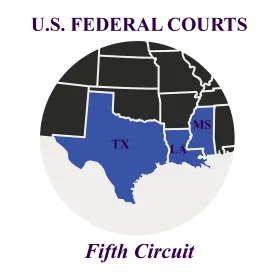On February 6, 2023, Judge Kernodle of the Eastern District of Texas once again vacated certain provisions of an agency rule as inconsistent with the No Surprises Act (the “NSA”). Almost a year ago, Judge Kernodle issued a similar decision, which we blogged about. Both decisions concerned the independent dispute resolution (“IDR”) process the NSA creates.
As we’ve previously reported, the NSA tasks IDR entities with resolving disputes between providers and insurers over the appropriate rate of reimbursement for certain out-of-network services. When a provider and an insurer are at an impasse in negotiations over a reimbursement dispute, the NSA, if applicable, requires them to submit their offers to the IDR entity, which is supposed to select the most reasonable of the two offers. In making that determination, the NSA requires consideration of a list of statutory factors, such as the median in-network rate for the services (also known as the “Qualify Payment Amount” or “QPA”), information relating to the training and experience of the provider, and the market share of the parties.
In the previous case, Judge Kernodle held that an interim agency rule contradicted the NSA by creating a “rebuttable presumption” in favor of the QPA and generally treating the QPA as the most important factor for IDR entities to consider. That interim rule was subsequently replaced with a final agency rule that the government promulgated in August 2022. In response, plaintiffs led by the Texas Medical Association then filed a new lawsuit seeking to vacate the new, final rule. The plaintiffs argued that, just like interim rule, the final rule impermissibly favored the QPA. In his February 6, 2023, decision, Judge Kernodle agreed with the Plaintiffs.
According to Judge Kernodle, the final rule unlawfully favored the QPA in a few ways. For example, Judge Kernodle held that the final rule unlawfully required IDR entities to consider the QPA first before considering non-QPA factors. Judge Kernodle also faulted the final rule for requiring IDR entities to presume the credibility of the QPA while evaluating the credibility of the non-QPA factors. Nor was it permissible, in Judge Kernodle’s view, that the final rule required IDR entities to explain themselves in writing if they gave weight to any non-QPA factor. These requirements, among others, convinced Judge Kernodle that the final rule unlawfully favored the QPA. As a result, the challenged provisions here went the same way as the challenged provisions in the interim rule: Judge Kernodle vacated the provisions and remanded to the relevant agencies “for further consideration in light of” his opinion.
It’s worth noting that Judge Kernodle has at least one more challenge to a NSA regulation pending on his docket. That challenge is likewise being led by the Texas Medical Association and takes aim at the methodology used to calculate the QPA. The plaintiffs in that case claim that the government’s methodology artificially deflates the QPA in a manner inconsistent with the No Surprises Act. The same issue is also pending in the other jurisdictions, such as the District Court for the District of Columbia and the Eastern District of Kentucky.





 />i
/>i

